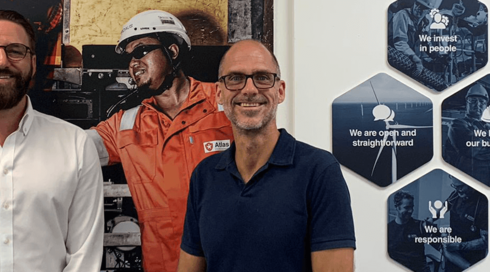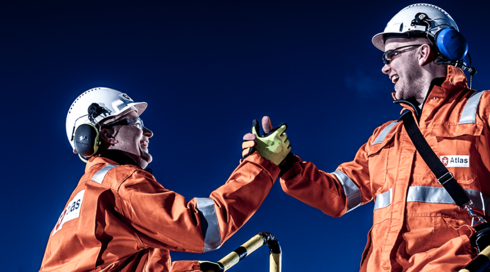4
The Dutch navy will completely outsource the central shore surveillance (Centrale Walbewaking, CWB) at the Den Helder Navy Base for the next 6 years. C-ZSK vice-admiral Rob Kramer recently sealed the collaboration with recruitment company Atlas Professionals.
Outsourcing
"Technical staff is scarce and the navy wants to reduce the surveillance workload of its seafarers. Therefore, they have chosen to outsource the central shore surveillance to Atlas Professionals and make it a civil service. In addition to providing personnel, Atlas will, after intensive cooperation with and training of the Navy during a transition period, also fully take on the coordination,” explains Robin van Woerden, Commercial Manager at Atlas Professionals.
The street scene at the Naval Base will therefore soon look slightly different. Citizens will be walking around with the Atlas Professionals logo on their clothing among the well-known navy-blue uniforms. These dispatchers, service technicians and security staff will monitor all ships inside the Navy Base. From the Central Location, coordination will be carried out for the handling of alarms and calamities of all vessels that are connected to the CWB.
Atlas will provide 33 people across three positions in Den Helder including: dispatchers (MBO-2), breakdown technicians (technical MBO-4) and safety officers (VMBO). “Thanks to this citizens' initiative these jobs, with good prospects, have become available to local people. We are already seeing a lot of interest and are looking forward to building a great partnership with the Navy,” says Tony Verschoor, Coordinator CWB at Atlas Professionals.
In an interview for Alle Hens, Project Coordinator Jenny Post explains how the shore surveillance works: “There will always be 1 dispatcher, 2 breakdown technicians and 2 security staff present regardless of the number of docked ships. The staff will always work in pairs, in the case of outrage on board. All ships are divided into 2 clusters: 1 duo of guards per cluster of ships. This is done in shifts, and so there is 24/7 surveillance.”
Education
During a transition period, when civilian personnel start their training, both military and civilian employees work at the CWB. This ensures the new employees gain knowledge and experience of the military personnel.
“The first training is planned to start in mid-March, depending on the VGB and ABDO certification,” says van Woerden. This is necessary because the employees are screened by the Military Intelligence and Security Service in the same way as Military personnel. “So, we are really going to play a strengthening role and, together with the Ministry of Defence, to improve and professionalise shore surveillance,” concludes van Woerden.
Interested in working for central shore surveillance? Then check out the vacancies on the Atlas Professionals website.
.png)
.png)


